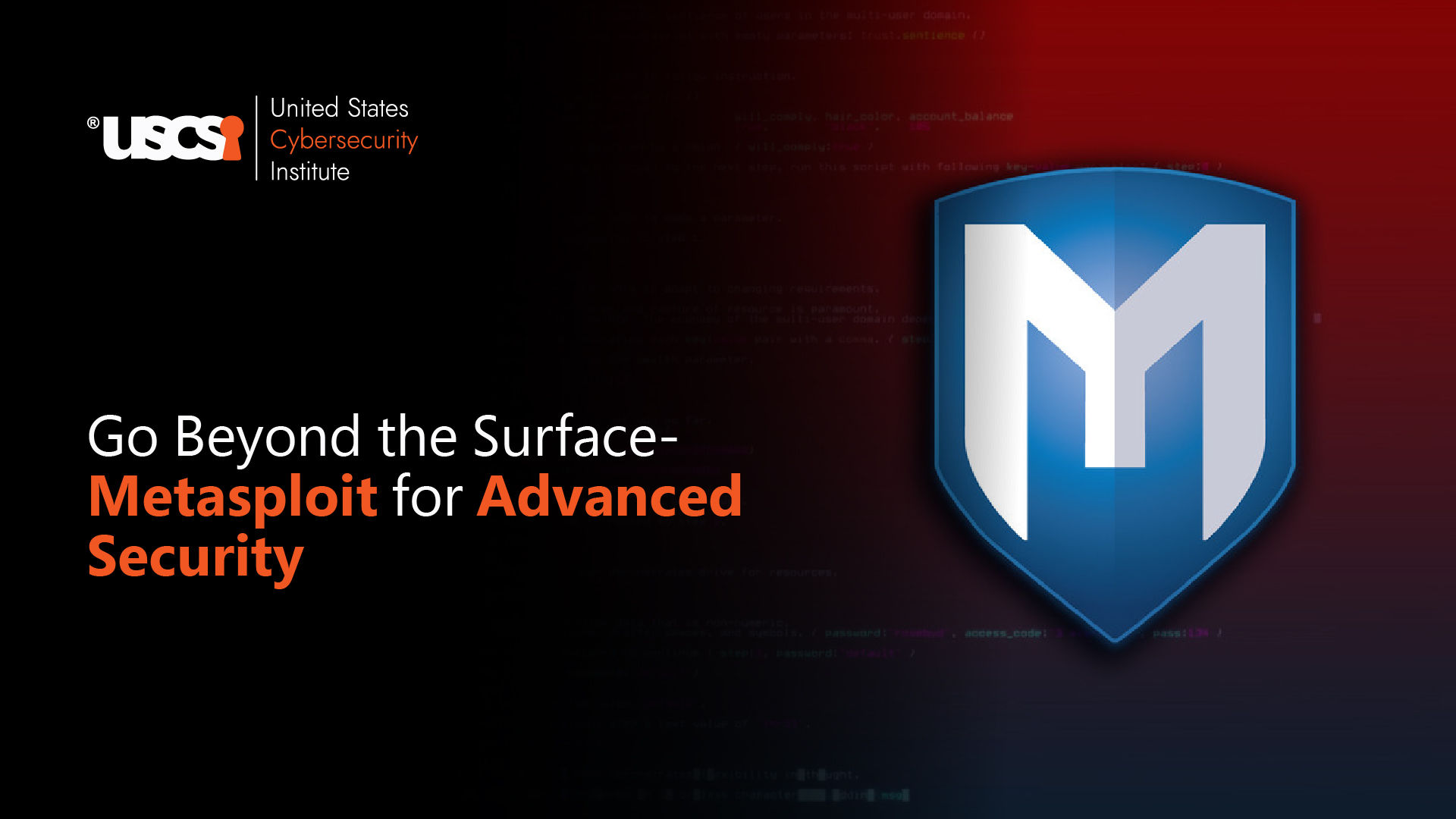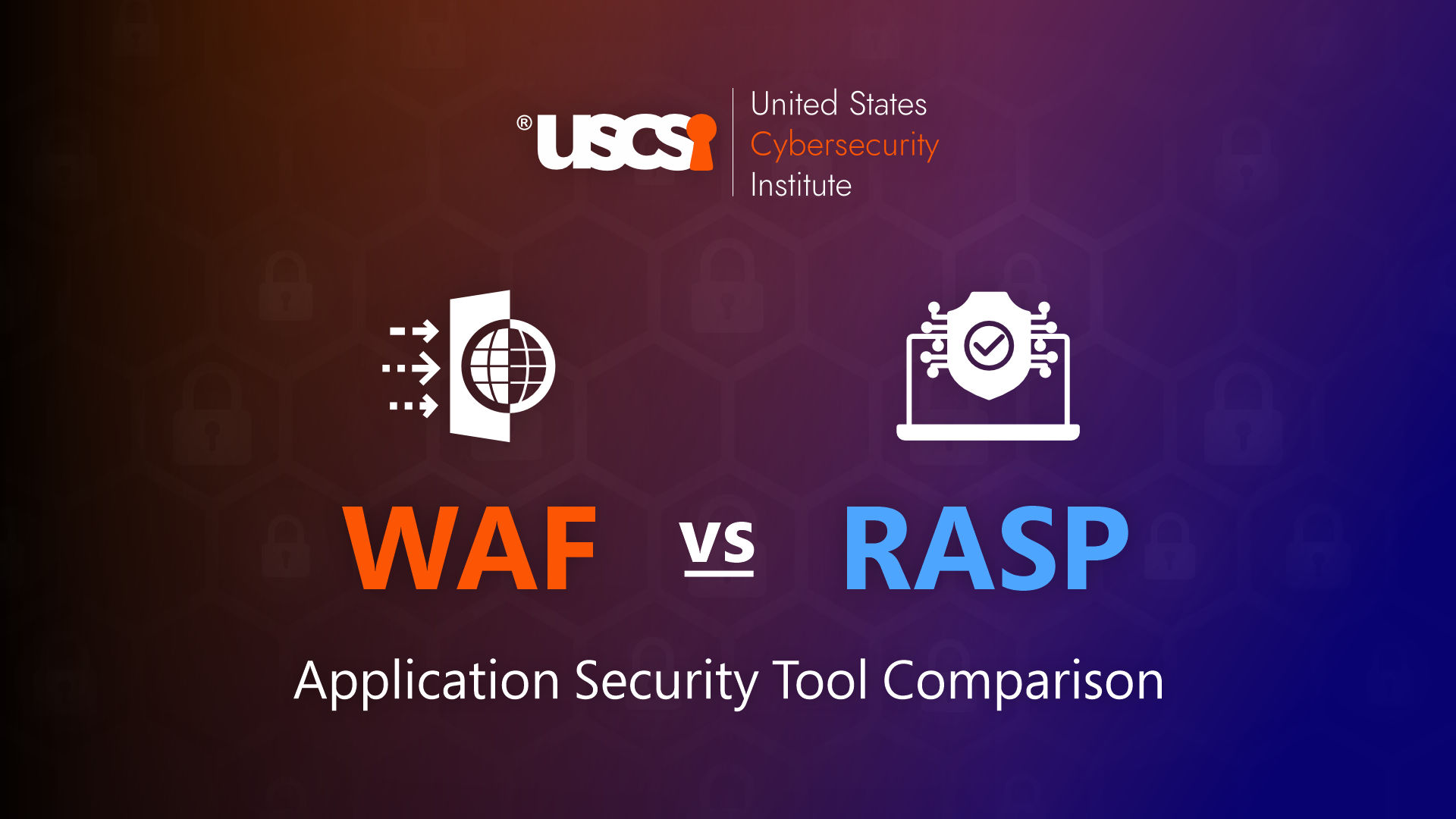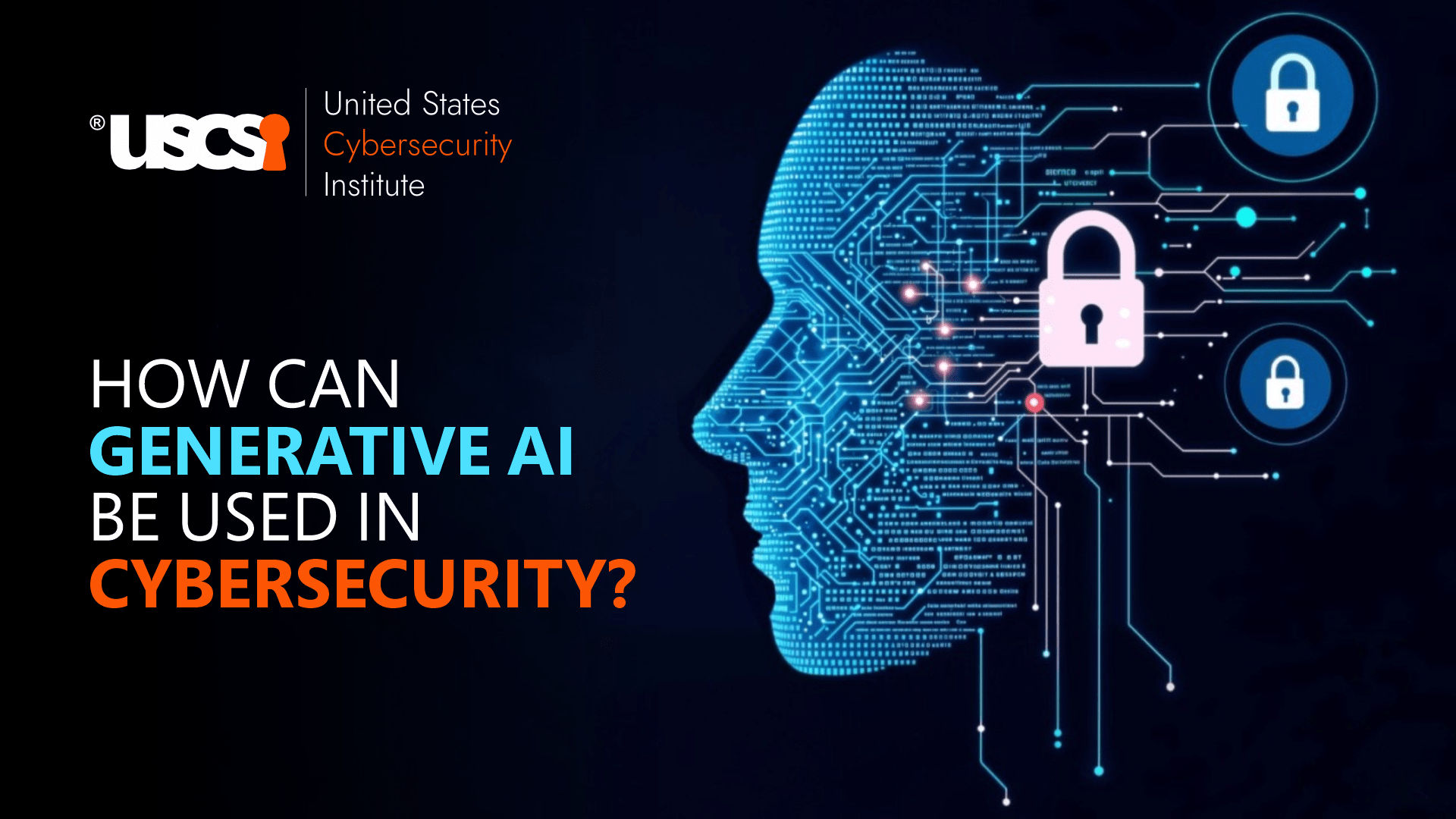

A Comprehensive Guide on Cybersecurity Frameworks for Business Growth
Understanding cybersecurity in today’s evolving times could be overwhelming for an industry aspirant. With cyber threats on the rise, it is advised to take the most important step of cyber scrutiny to guard against malicious attacks. A record stated by ITGovernance.co.uk reports that 30,272,408,782 known records have been breached so far in 5,360 publicly disclosed incidents. This is a clear case of urgent cyber wall build-up as the global business economy nears the elevated threat landscape. However, the most annoying factor could be the talent gap that the cybersecurity industry faces due to the lack of a specialized and certified cybersecurity expert workforce.
Understanding Cybersecurity Framework:
The frameworks in cybersecurity are sets of documents that elaborate guidelines, standards, and best practices designed for cybersecurity risk management. The following parts are deemed essential while formulating a custom cybersecurity framework that could be best suited for an organization.
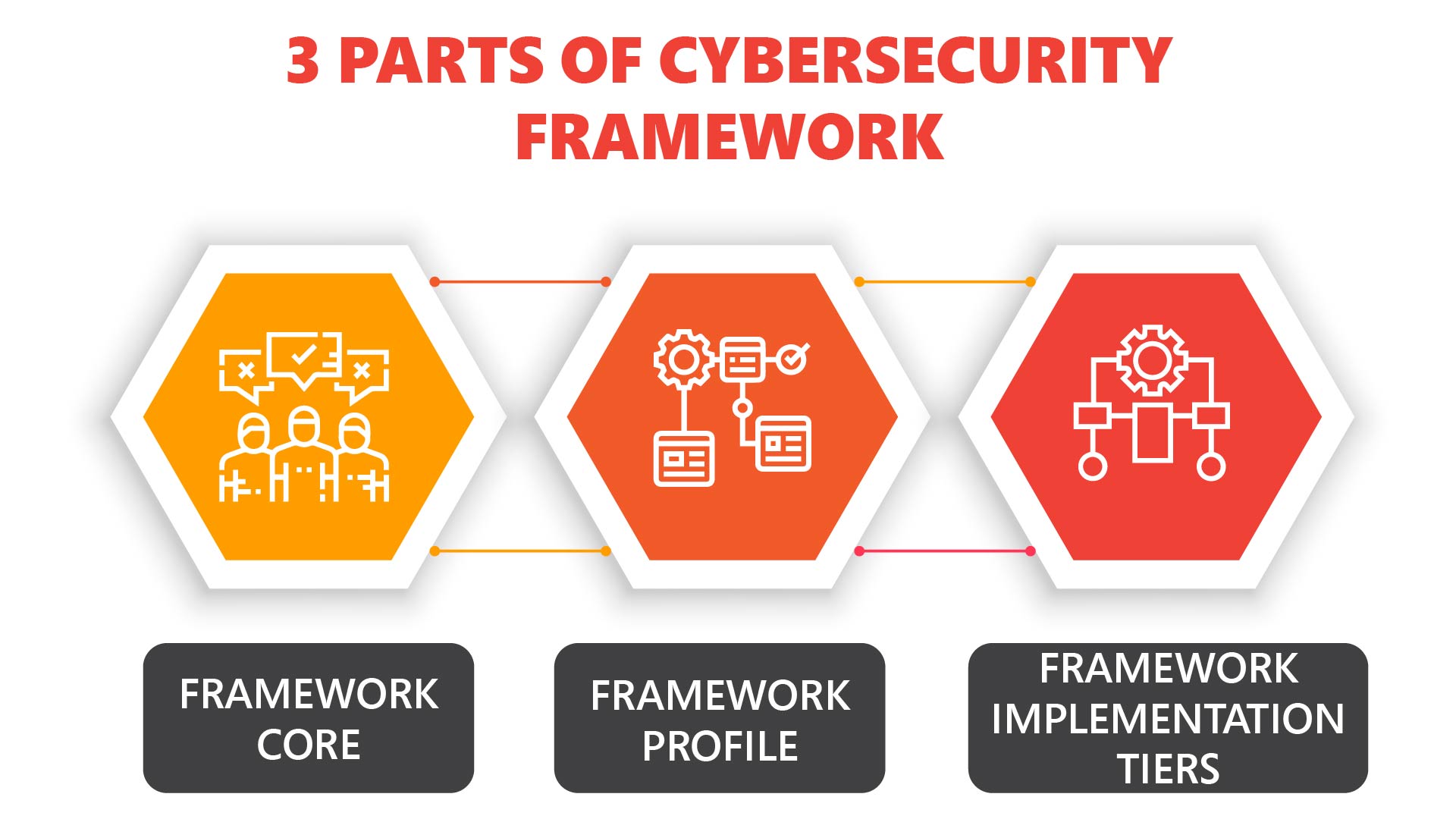
These cybersecurity frameworks exist to contain an organization’s exposure to weaknesses and vulnerabilities that hackers and other cyber criminals may exploit.
How Cybersecurity Frameworks Help Organizations?
Cybersecurity frameworks not only assist businesses and organizations to meet regulatory requisites; but also serve as a strategic tool for:
- Risk mitigation
- Enhanced digital defense
- Improved customer confidence
- Business growth assistance
- Commitment to security compliance
Cybersecurity Framework- Components:
Cybersecurity frameworks in an organization are an essential step to undertake to safeguard and limit vulnerabilities and infiltration. They require specialized cybersecurity professionals to make it work for them. The core components of cybersecurity frameworks are:
- Comprehensive Risk assessment
- Security Control Implementation
- Policy Development
- Continuous monitoring
- Ongoing Risk Management
3 Types of Cybersecurity Frameworks:
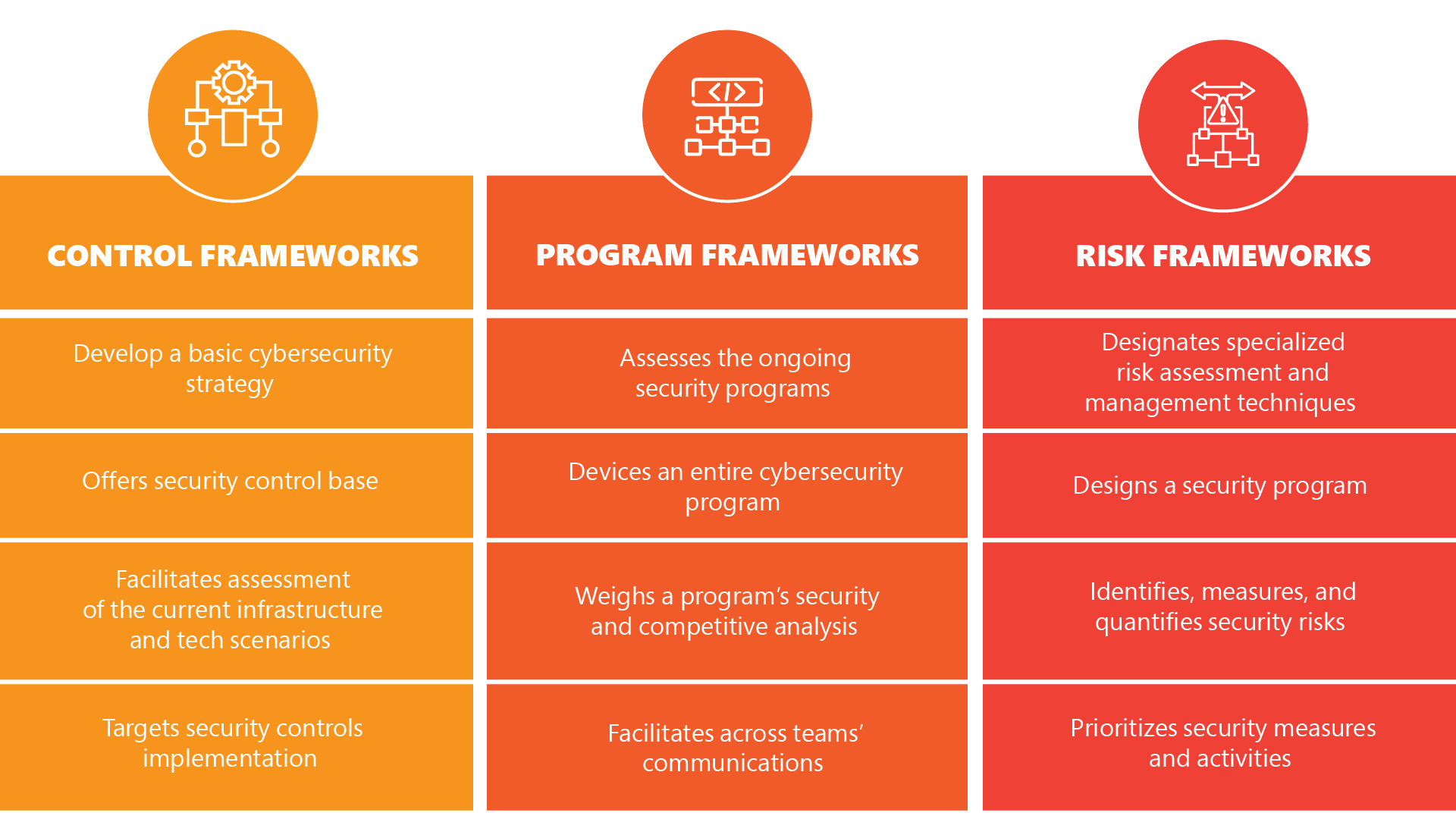
4 Popular Cybersecurity Frameworks:
- NIST Cybersecurity Framework:
The National Institute of Standards and Technology (NIST) Cybersecurity Framework is a comprehensive guide for managing and reducing cybersecurity risks. It is not a legal requisite; instead, a voluntary framework developed to provide organizations; with guidelines and best practices in cyberspace. NIST offers a systematic approach to:
- Identifying the risks
- Guarding the assets
- Detecting cybersecurity events
- Responding to unprecedented incidents
- Recovering and restoring capabilities after an incident has occurred
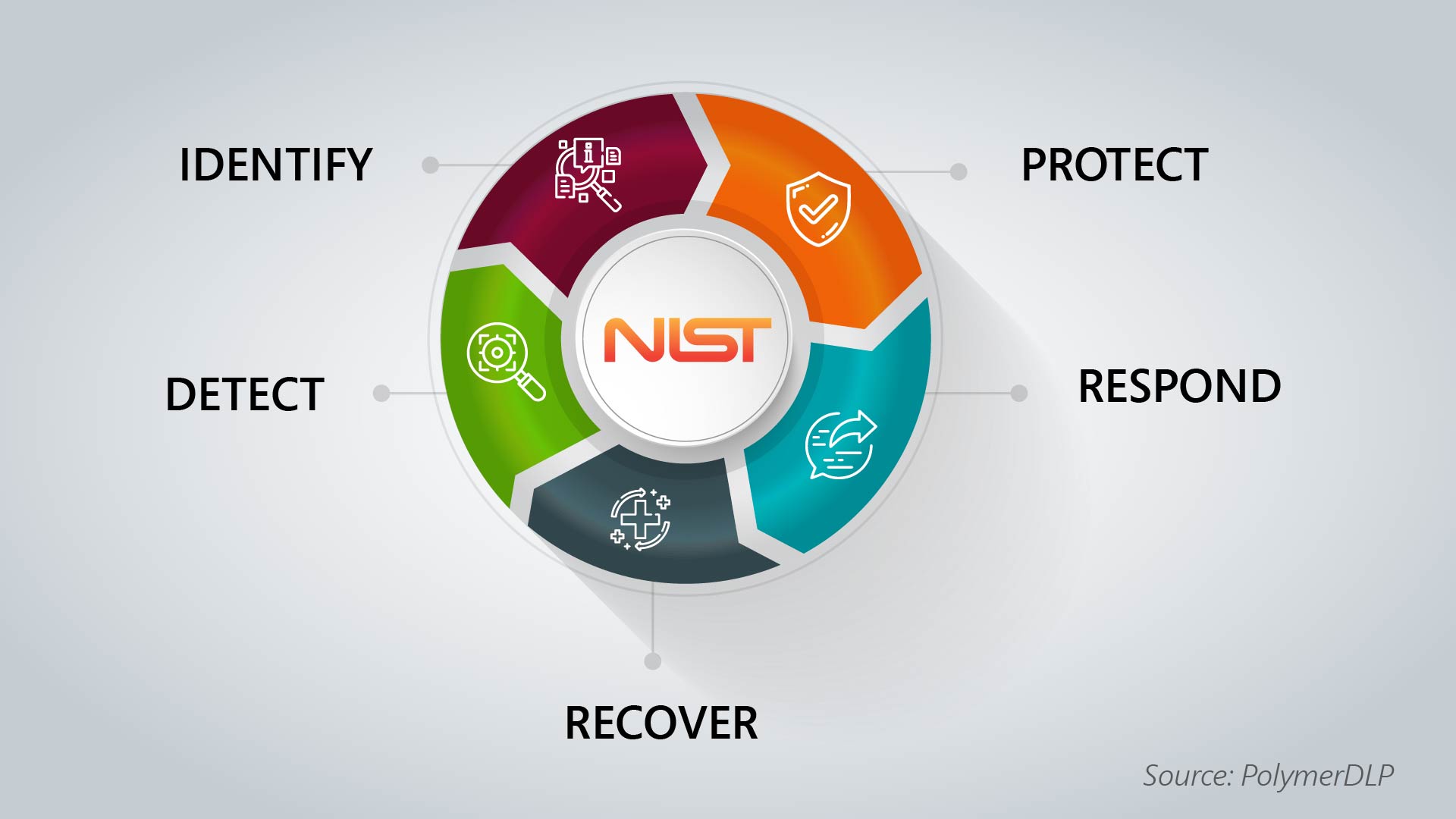
Initially, having secured critical infrastructures in the United States, the NIST has expanded its framework applicability across sectors and organizations worldwide.
- CIS Controls
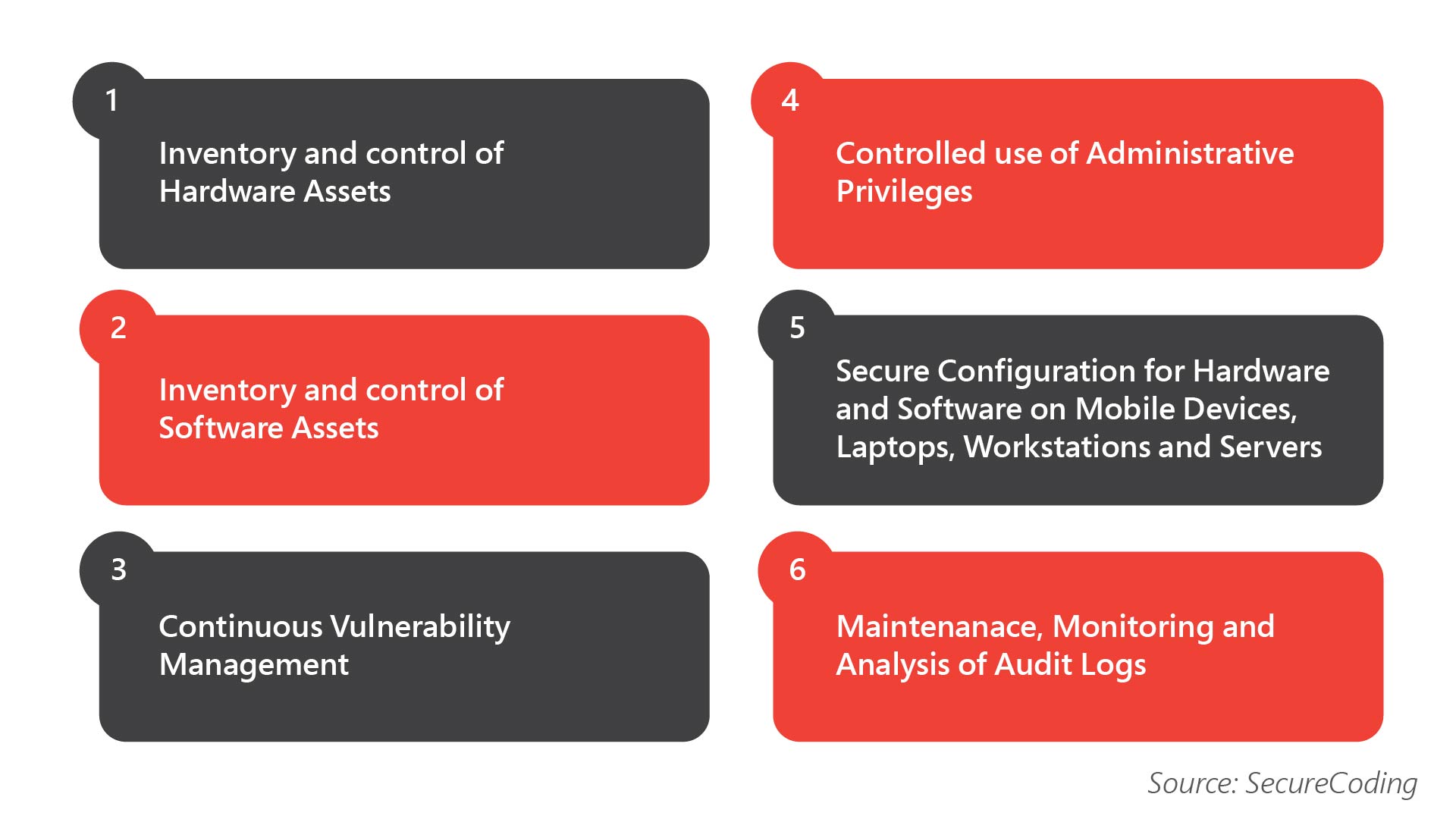
CIS Control Frameworks are a multi-layered security shield that offers a set of 18 cybersecurity best practices aimed at reducing risk and enhancing resilience within technical infrastructures. Developed with community consensus; CIS Controls are based on prescriptive and prioritized cybersecurity practices widely adopted by industry professionals. Its Version 8 (latest) focuses on accommodating hybrid and cloud environments; while improving security across supply chains.
- COBIT Framework
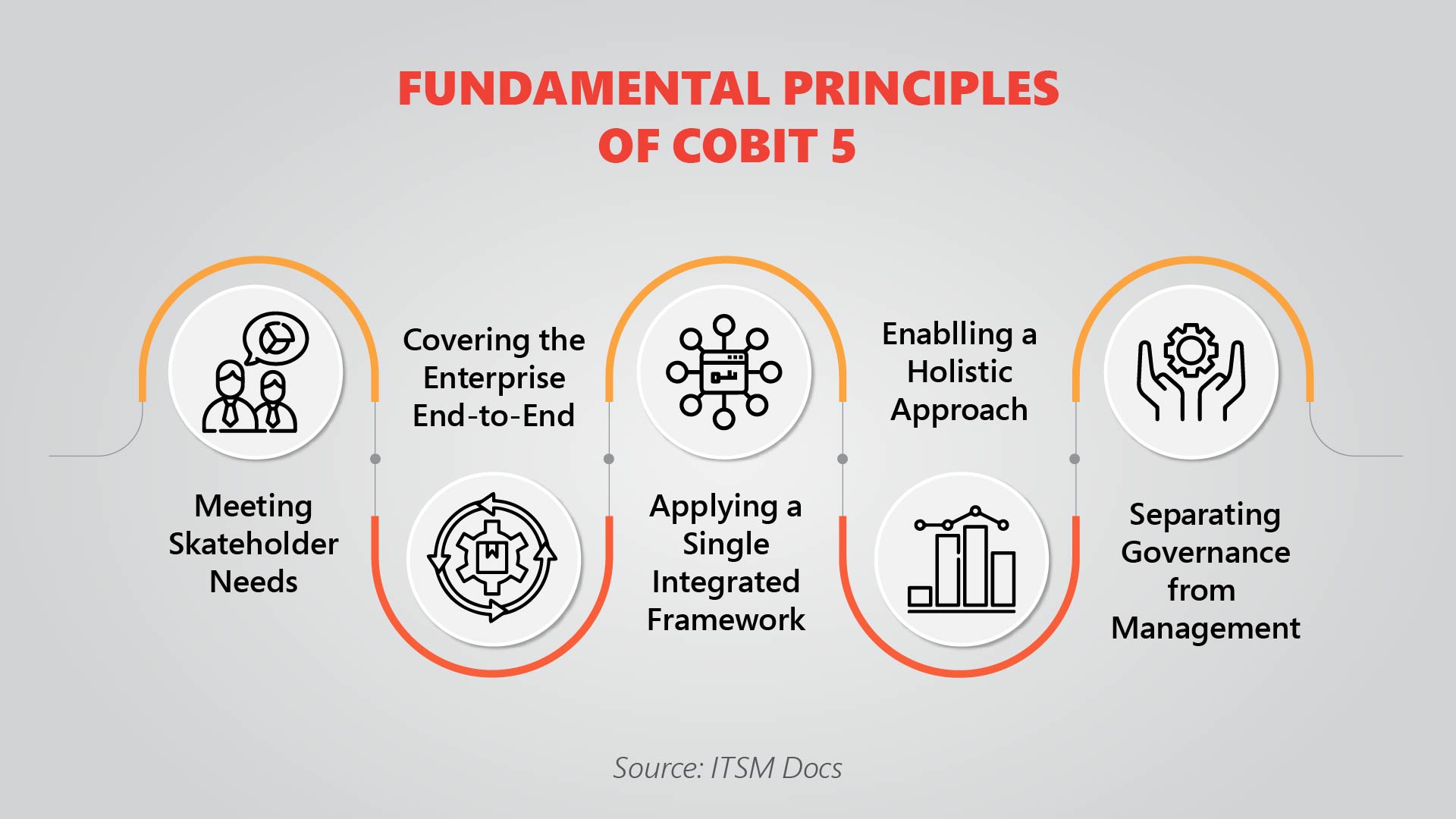
The Control Objectives for Information and Related Technologies (COBIT) is a framework that was created for IT governance and management. It is a supportive tool for managers that aligns technical issues, business risks, and control requisites. It is widely accepted as a security framework that would assist businesses to help broader goals with IT processes.
- ISO/IEC 27001/27002 Series
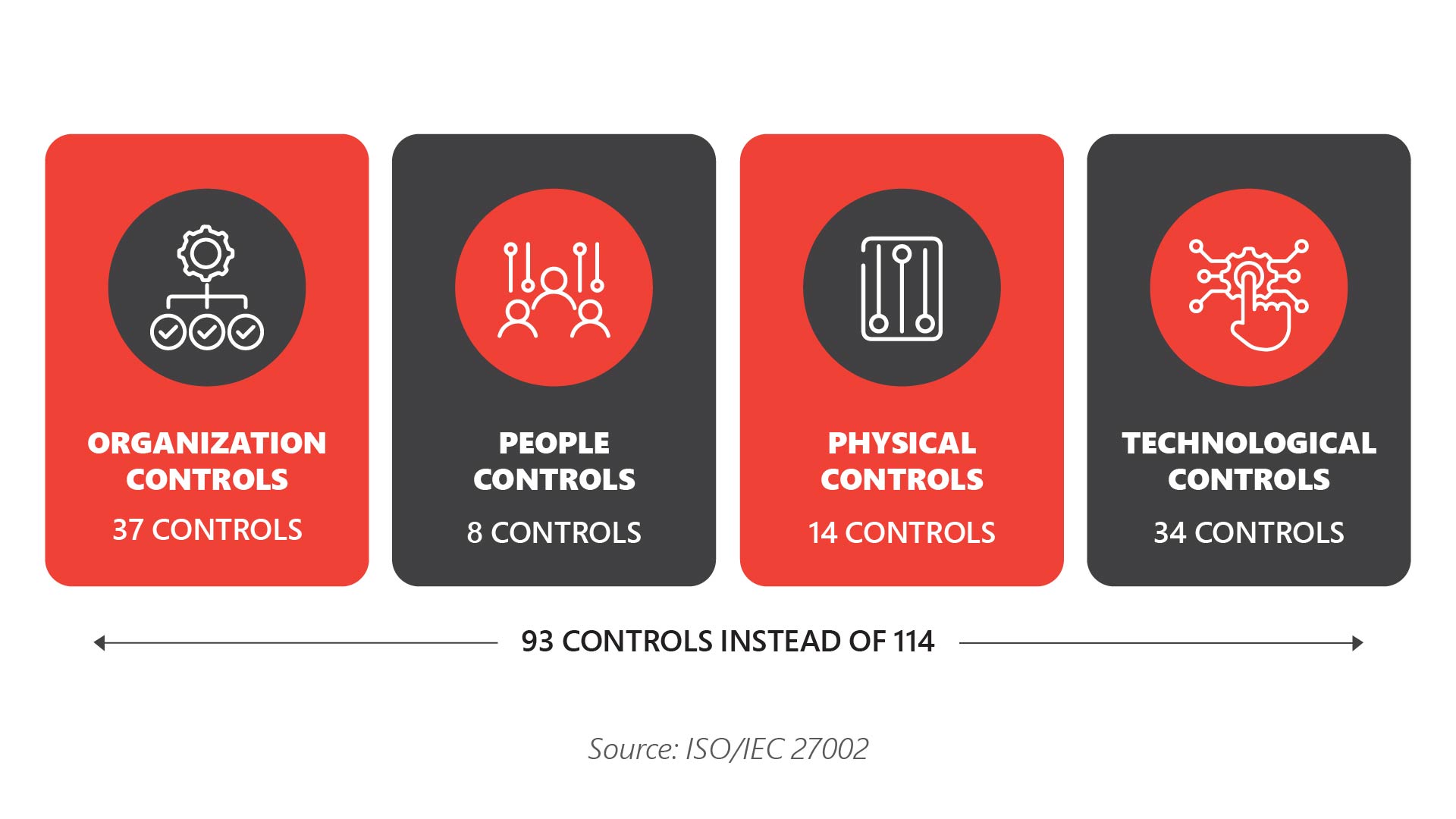
It is an internationally recognized standard for information security management. These are considered credentialing badges for organizations that validate your adherence to international cybersecurity standards and demonstrate your ability to manage information securely. These are widely adopted with over 70k certificates issued in 150 countries. Irrespective of whether you are a small start-up or a big business enterprise; ISO/IEC 27001 can assist in establishing an information security management system that adopts best practices and addresses security holistically.
Why do businesses need a cybersecurity framework?
- Cybersecurity frameworks remove the guesswork from securing digital assets
- Helps teams address cybersecurity challenges by offering strategic plans to protect their data
- They offer guidance while helping IT teams manage their organizational risks intelligently
- Help companies follow the appropriate security procedures
- Fosters consumer trust
- Resonates with the needs of the businesses regardless of their size or industry type
- These adapt and adjust overtime to meet the business needs
Factors to Consider While Selecting a Cybersecurity Framework:
Your selection decision of an appropriate cybersecurity framework shall depend on the following factors; instead of being a common resolve to all.
- Regulatory obligations
- Business needs customization
- Scalability
- Organizational Leadership Support
Cybersecurity Framework in Organizations are a reflection of their commitment towards stringent cyberguards; that assist in solidifying the strengthening notion about the business. Consumers gain confidence in an organization that is driven to guard its systems consistently. For its success; organizations must hire credibly certified cybersecurity professionals who are trained in top-rated cybersecurity certification programs. This way; they will be of high benefit to the organization as they can leverage their core competence in cybersecurity strategies to build a guard against malicious infiltration in the future. Making cybersecurity frameworks a responsibility could just be the beginning for businesses to offer a thriving landscape for all sectors alike.


